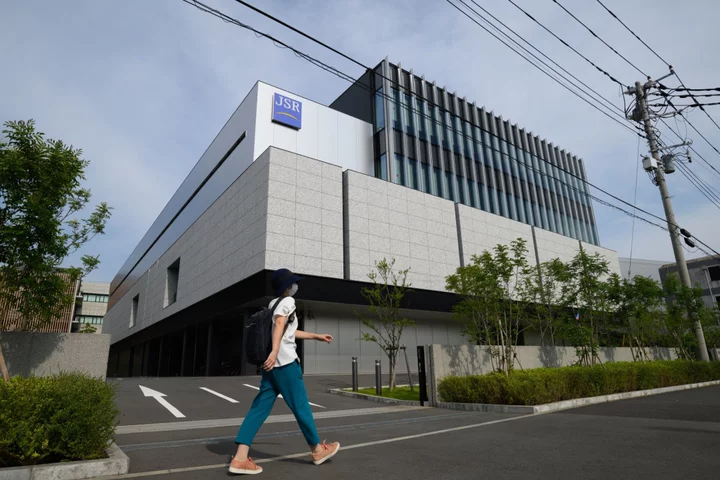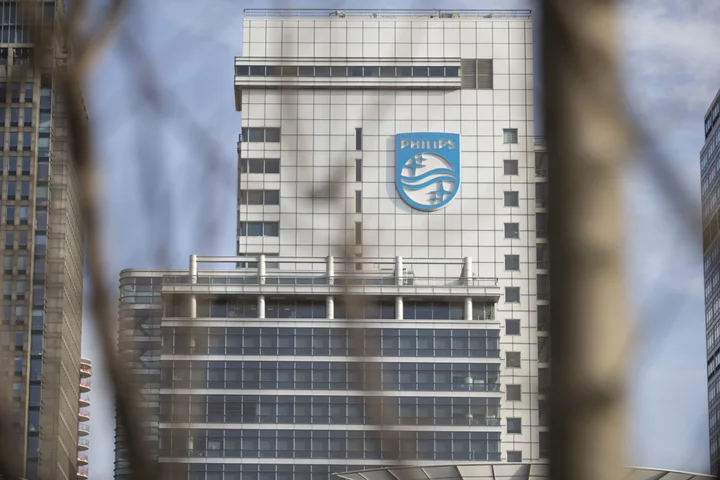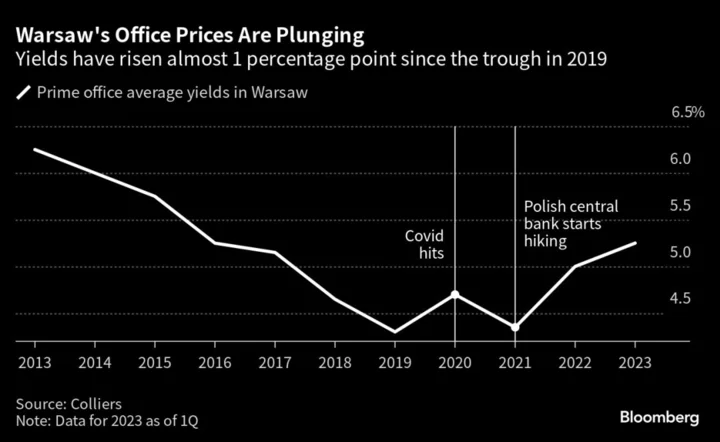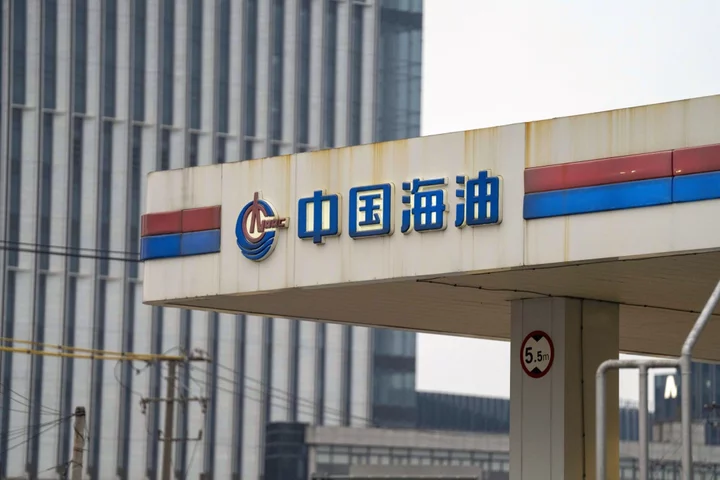Japan’s government unveiled a $6.3 billion deal to buy out and privatize JSR Corp., taking direct control of the world leader in chipmaking compounds at a time US-Chinese tensions threaten to fragment the $550 billion global semiconductor industry.
Government-backed Japan Investment Corp. plans to offer shareholders ¥4,350 ($30.40) a share in a tender offer around December, the company said Monday in a statement. That works out to as much as ¥903.9 billion, JSR said.
The move could help Tokyo expand control over compounds essential for making advanced semiconductors. Founded in 1957, JSR is the world’s leading maker of photoresists and one of three Japanese companies, along with Shin-Etsu Chemical Co. and Tokyo Ohka Kogyo Co., that control the global supply of fluorinated polyimide and hydrogen fluoride.
Those compounds are needed to make semiconductors used in supercomputers, AI-harnessing data centers and missile control systems, not to mention gadgets including Apple Inc. iPhones. Government control over the materials critical to powerful chips would grant Japan greater leverage in a world increasingly divided by an escalating US-China technological rift.
An unlisted JSR backed with public funds may also be able to take more long-term risks to expand market share. JSR surged 22% Monday after the Nikkei reported on the deal, the most since 1999. JSR peer Shin-Etsu jumped 1.5% and Tokyo Ohka Kogyo surged 9.1% to a record high.
“The point is to make the most of this position of strength. So the government is continuing these strategic investments,” said Kazuto Suzuki, a professor with the University of Tokyo Graduate School of Public Policy. “If the government takes it over, it won’t be exposed to the risk of a buyout from overseas. So it becomes a national policy company.”
Prime Minister Fumio Kishida’s administration is betting shifting geopolitical priorities will help Japan regain some of its long-lost leadership in semiconductors. Japan’s preparing billions of dollars in subsidies as part of a push to triple domestic production of chips by 2030.
Growing tech protectionism is spurring policymakers globally to go upstream in the supply chain to find more chokeholds by which to control technologies. In October, the US spearheaded a push to limit China’s access to advanced semiconductors, and its allies have also since stepped up efforts to curb exports on equipment and technology.
Germany has also discussed limiting the export of chip chemicals to China. Such a move would restrict sales of materials by companies such as Merck KGaA and BASF SE, slowing China’s ability to innovate.
Japan, which seeks to raise its own profile as a chip supplier, still commands leading market share in a number of little-known but essential parts of the chip supply chain — a legacy from when Japan led the world in semiconductor technology in the 1980s.
Tokyo first tightened control over exports of chip chemicals in 2019, roiling South Korea’s biggest companies and prompting Seoul to file a complaint to the World Trade Organization. The restrictions did little to affect shipments of the materials to chipmakers Samsung Electronics Co. and SK Hynix Inc., but the move was seen as a threat to hurt Seoul economically.
“The semiconductor materials business is becoming increasingly important as a matter of national policy,” SMBC Nikko analyst Go Miyamoto wrote in a note. Valuations for other semiconductor materials stocks will likely increase “if investors start to price in similar possible acquisitions.”
--With assistance from Vlad Savov, Isabel Reynolds and Go Onomitsu.
(Updates with analyst’s comment from the fifth paragraph)









